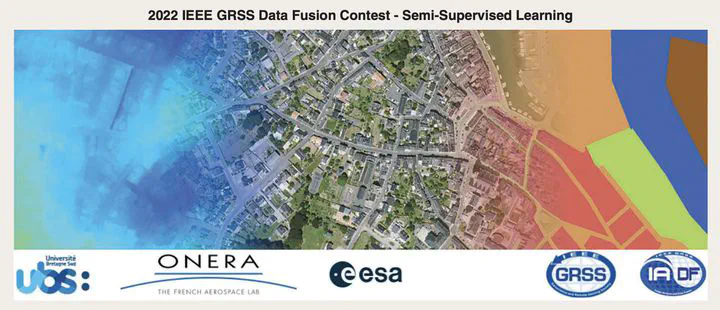The 2022 IEEE GRSS Data Fusion Contest: Semisupervised Learning [Technical Committees]
Mar 1, 2022·,, ,,,·
0 min read
,,,·
0 min read
Ronny Hänsch
Claudio Persello
Gemine Vivone
Javiera Castillo Navarro
Alexandre Boulch
Sebastien Lefevre
Bertrand Saux

Abstract
Data availability plays a central role in any machine learning setup, especially since the rise of deep learning. Although input data are often available in abundance, reference data used to train and evaluate corresponding approaches are usually scarce due to the high cost of obtaining them. Although this is not limited to remote sensing, it is of particular importance in Earth-observation applications. Semisupervised learning is one approach to mitigate this challenge and leverage the large amount of available input data while relying only on a small, annotated training set.
Type